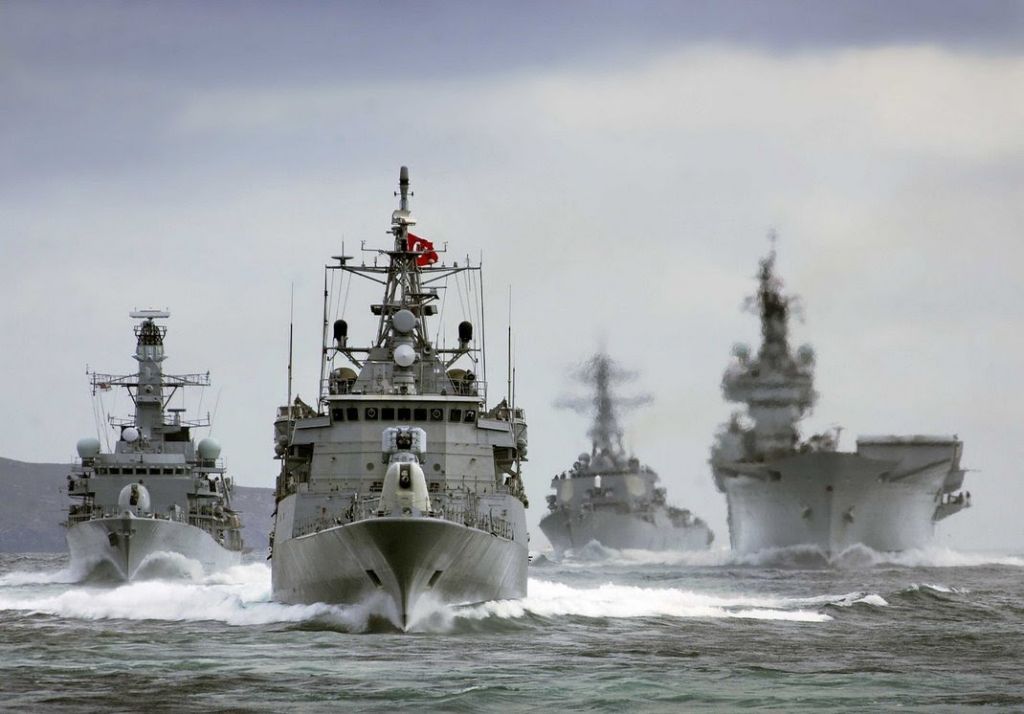
In recent days, Turkey has been on the path of challenges and increasing tension with Greece, as Turkish officials are launching threats of war against Greece and attempting to question the sovereignty of Greek islands.
The reinstatement of the casus belli by Ankara, under the pretext of the possible extension of Greek territorial waters to 12 nautical miles south of Crete, was probably an expected move for those who at least foresee how Ankara moves when pressured.
After all, Turkey is also used to tossing about open threats against Greece in the past, when it feels that movements are being made on the geopolitical map without it being able to intervene.
Both Prime Minister Kyriakos Mitsotakis and Foreign Minister Nikos Dendias have repeatedly stated that the government will move forward with this issue, whenever and wherever it is deemed to serve the national interests.
Threats of war
The first report where Turkey once again recalled the casus belli was made on December 29 by Turkish Foreign Minister Mevlut Cavusoglu.
The Turkish Foreign Minister brought back the threats of war if Athens exercises its inalienable right to extend its territorial waters to 12 nautical miles.
“Not 12 miles, not one,” the Turkish foreign minister said, according to Turkish media, during the customary press conference before the end of the year.
Recalling the casus belli, he added: “The decision was taken by our National Assembly in 1995 and the issue is clear and the decision remains in force.”
Similar statements were made in the following days by other Turkish officials, such as the Minister of Defense, Hulusi Akar.
“We do not accept any extension of territorial waters. We are talking about a Turkey with a coastline of more than 1800 kilometers and Turkey will enter international waters with your permission. What mind would accept that? We say in Greece, “the wrong bill will return from Ankara”.
Turkey is moving away from the West
Professors of International Relations who monitor the movements of Turkish officials and the “sultan” ahead of the elections in the neighboring country, explain Recep Tayyip Erdogan’s obsession with Greece.
“We are dealing with a neighbor who cannot negotiate, cannot discuss, disputes the Law of the Sea, has not signed it, threatens in every way. At the present time, with the political survival of President Erdogan in doubt, this sharpness is attractive”, said Kostas Yfantis, professor of International Relations, speaking to Greek public broadcaster ERT.
Professor Constantinos Arvanitopoulos, for his part, emphasized that Turkey is not only slowly moving away from the West, but with its current leadership, it has adopted an imperial fantasy.
“In other words, he considers that the current circumstances favor its penetration into other areas and, of course, the revision of the Treaties,” he said characteristically.
“He is planning a war to save himself”
It is worth noting that in yesterday’s Politico article about Recep Tayyip Erdogan, it is stated that after destroying the Turkish economy and impoverishing the middle class he had supported, he is now dragging his country into an unnecessary war and manipulating the courts against his opponents.
In fact, the article talks about a ruthless attempt by Erdogan to cling to power in 2023 – the centenary of the Turkish Republic.
The article continues with the “sultan’s” well-known threats against Greece: “At the same time, the Turkish president is threatening to strike NATO ally Greece amid manufactured disputes over gas drilling, Cyprus and alleged “militarization “of the Greek islands in the Aegean”.
“To terrorize Greece”
In Turkey, in the last few days, there has been an increase in media reports about the tension that exists with our country, as well as calls from analysts and military personnel for a resounding response to Greece.
Today’s statement by retired Turkish colonel Joskun Basbug is indicative. “To terrorize and warn Greece with the mission of the aircraft carrier TCG Anadolu” he said characteristically.
Basbug also emphasized that “I expect to be assigned the first mission in the place where the Eastern Mediterranean and the Sea of Islands (I do not say the Aegean) intersect.” Turkey will give the message that “I am ready for everything and I am here in response to these steps.
Because Greece has the audacity to extend its territorial waters to 12 miles in March. I think it would be our duty both to terrify them after this statement and also to warn Greece and certain organizations about the latest developments in the region. That’s what I think, the navy will decide better. We will see and we will all see it together.”
Latest News

Easter Sales Performance and the Source of €4–5 Million in Losses
Easter retail sales were relatively weak this year, with the only "real winners" being the livestock farmers who had lambs to sell.

Hotel Foreclosures Continue to Plague Greece’s Islands
A surge in hotel foreclosures across Greece’s islands threatens small tourism businesses, despite booming visitor numbers and record-breaking travel in 2024.

Athens Launches Task Force to Safeguard Historic City Center
The new municipal unit will ensure compliance to zoning laws, curb noise, and address tourist rental issues starting from the Plaka district.

WTTC: Travel & Tourism to Create 4.5M New Jobs in EU by 2035
This year, international visitor spending is set to reach 573 billion euros, up by more than 11% year-on-year

IMF: US Tariffs Shake Global Economy, Outlook Downbeat
IMF slashes global growth forecast to 2.8% as U.S. tariffs create uncertainty and ‘negative supply shock

First Step Towards New Audiovisual Industry Hub in Drama
The project is set to contribute to the further development of Greece’s film industry and establish Drama as an audiovisual hub in the region

Airbnb Greece – Initial CoS Ruling Deems Tax Circular Unlawful
The case reached the Council of State following annulment applications filed by the Panhellenic Federation of Property Owners (POMIDA)

Mitsotakis Unveils €1 Billion Plan for Housing, Pensioners, Public investments
Greek Prime Minister Kyriakos Mitsotakis has announced a new set of economic support measures, worth 1 billion euros, aiming to provide financial relief to citizens.

Alter Ego Ventures Invests in Pioneering Gaming Company ‘Couch Heroes’
Alter Ego Ventures' participation in the share capital of Couch Heroes marks yet another investment by the Alter Ego Media Group in innovative companies with a focus on technology.

Corruption Still Plagues Greece’s Driving Tests
While traffic accidents continue to claim lives on Greek roads daily, irregularities and under-the-table dealings in the training and testing of new drivers remain disturbingly widespread













![Accor: Η βιωσιμότητα «κλειδί» για την ανάπτυξη και ανθεκτικότητα του ελληνικού τουρισμού [έρευνα]](https://www.ot.gr/wp-content/uploads/2025/04/thumbnail-90x90.jpg)

























![Accor: Η βιωσιμότητα «κλειδί» για την ανάπτυξη και ανθεκτικότητα του ελληνικού τουρισμού [έρευνα]](https://www.ot.gr/wp-content/uploads/2025/04/thumbnail-600x400.jpg)


 Αριθμός Πιστοποίησης
Αριθμός Πιστοποίησης